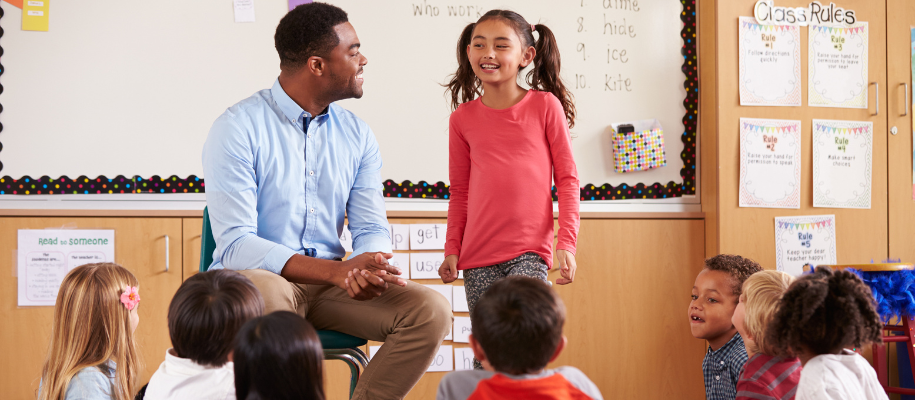I’ve spent a great deal of time around kids in a classroom setting. Aside from being a kid in a classroom, both my parents are teachers. This has given me the chance to experience school from both sides, from volunteering at recess in middle school to my first big classroom experience as a teacher’s aide for a kindergarten summer school class. Currently, I help with directed teaching as a class, so I’ve picked up a few things about being in the classroom. If you’re looking to major in Education, especially if you’re hoping to teach younger kids, these tips may be beneficial in providing a perspective to life in the classroom.
1. You need a backbone
Little kids are the most brutally honest characters you’ll ever meet. They’ll break you down unless you can fend for yourself. Kids say exactly what they see, which is a double-edged sword. It’s not that they’re bold or outgoing; they’re just honest. Keep this in mind if your students tend to be outspoken. It’s normal and natural, but it can become an issue when they start verbally attacking other students. You have to be able to protect yourself and other students. It’s important to remind kids of The Golden Rule: Treat others the way you want to be treated. While you may have to take an insult now and again, it's also your job to make them realize what they say to others might be hurtful.
Related: 6 Tips for Surviving Your First Year as a Teacher
2. There’s never enough sleep
School starts early in the morning, and students don’t get enough sleep as is. But it can be even more challenging to get enough sleep if you’re behind the teacher’s desk. When I was helping with summer school, I came in so tired one day I napped on the bathroom floor. I was just an aide, but imagine if the teacher was falling asleep in the middle of a lesson! Consider your sleep habits and whether you’ll be able to manage them better as a teacher. You may need to learn to adapt to earlier bedtimes or function simply on fewer hours.
3. Words have power
Be careful with anything you say, because kids pick things up quickly. I’m sure we all remember something an adult said that made our eyes well up with the impact it had on us. Use your words to encourage and build up your students rather than break them down. For example, instead of telling a student they’re being mean, explain why their actions are hurtful to others. It puts a greater emphasis on the power the student’s actions have and draws attention to his or her behavior without making them feel like they’re a bad kid. It can be difficult to always think about what you’re going to say, but it’s necessary—you’re a strong influence on them.
Related: What is Being a Teacher Really Like?
4. Patience is key
Young children are still learning how to function and fit in. They’re still developing. It’s important to remember it may take them varying times to figure things out, and you have to remind them that it’s okay. Don’t punish kids just because they can be irritating. An annoying kid is not a bad kid, and I’ve seen even the most experienced teachers forget that. When in doubt, take a deep breath and try to move past the frustration to get to the root of the problem with the student at hand.
5. It’s worth it
I had one student who would always write his name backward, so every day I would practice with him. Now he’s in the second grade, and every time I see him, he shows me a big smile and his name written correctly. That was just one thing I did in a month; imagine all the challenges teachers help students overcome in a whole school year. No matter how hard it seems, this job will be fulfilling and worth it in the end when you leave a major positive impact on your students.
Related: Impact Through Education: What It Means to Be a Teacher
Of course, teaching isn’t for everyone. Some people aren’t willing to sacrifice sleep, while others lack patience. Being a teacher means remaining gently firm and minding what you say at all times. Take time to volunteer with kids inside and outside a classroom setting to be sure it’s something you’re willing to do. We need good teachers in the system so future generations can be made of people with the brightest ideas and the most brilliant minds for society to thrive. It’s so important to reach out and teach kids everything they need to know. Remember all this as you work to be one of those great teachers.
Find your perfect education program by perusing our featured teaching colleges lists to learn about universities across the country!






